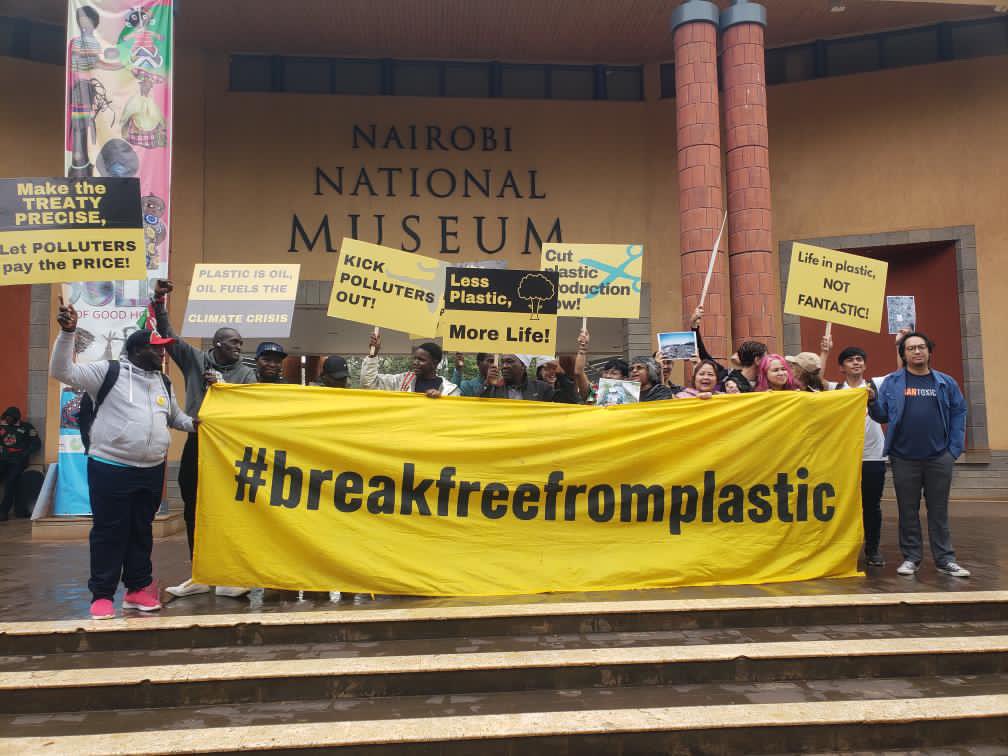“The only way to curb our catastrophic plastic pollution problem is to cut plastic production, but the industry is spending big to block action at every level to protect their profits,” said one campaigner.
By Brett Wilkins. Published 11-17-2023 by Common Dreams

Major multinational corporations attending negotiations for a global plastics treaty in an effort to weaken the agreement spent tens of millions of dollars on lobbying and political contributions during the 2022 election cycle, revealed an analysis published Friday by the Center for Biological Diversity.
As Common Dreams reported this week, 143 fossil fuel and chemical industry lobbyists registered to attend the third session of the Intergovernmental Negotiating Committee (INC-3) in Nairobi, Kenya, which is scheduled to run through Sunday. That’s more than the combined delegations from 70 nations, and far surpasses the 38 members of a scientists’ coalition participating in the negotiations.
Representatives of companies including ExxonMobil, Chevron, Coca-Cola, PepsiCo, and Dow are among the registered attendees. Industry lobby groups representing hundreds of companies are also attending the talks, including the American Chemistry Council, the American Fuel and Petrochemical Manufacturers, and the International Council of Beverages Associations.
With over $20 million spent on lobbying and campaign contributions during the 2022 election cycle, the American Chemistry Council topped the Center for Biological Diversity’s (CBD) list, which is based on data from the government watchdog group OpenSecrets. Boeing spent more than $17 million, while Chevron shelled out nearly $15 million.
“These companies came to Nairobi to make sure the world doesn’t get strong protections against the plastic havoc they’ve been wreaking,” David Derrick, a CBD attorney attending INC-3, said in a statement. “We knew that industry had way too much influence over the global plastics treaty as well as our political system at home, but these dollar amounts highlight how far petrochemical and consumer goods companies will go to keep polluting.”
INC-3 is focused on the so-called zero draft of the legally binding plastics treaty. On Thursday, the fourth day of talks, delegates completed a first reading of the zero draft, with participating nations submitting suggestions for what they believe should be included in the treaty’s first draft, which will be the basis of negotiations at INC-4, scheduled to take place next October and November in Ottawa, Canada.
Susan McCarthy, media and external affairs director at World Wildlife Fund U.S., said that “what is worrying… is the voluminous amount of suggestions that member states have submitted.”
“This creates the temptation for member states to veer towards compromises that have the potential of watering down the eventual treaty in an effort to include as many suggestions as possible,” she continued. “Whittling down a massive list to a number of key priorities can also be onerous, and can result in the convergence we’re seeing now fragmenting as member states push for their suggested items.”
“Fragmentation can occur as different member states may have different priorities, such as political affiliations or a preference to base decisions only on scientific evidence, which could drive the decision-making process in opposing directions,” McCarthy added.
Derrick asserted that “the only way to curb our catastrophic plastic pollution problem is to cut plastic production, but the industry is spending big to block action at every level to protect their profits.”
“The world has a historic chance to make a difference in the relentless flood of plastic pollution that’s harming so many,” he added. “We can’t let a relatively small number of profit-hungry companies derail such an important opportunity to fix our plastic problem at its source.”
This work is licensed under Creative Commons (CC BY-NC-ND 3.0)

